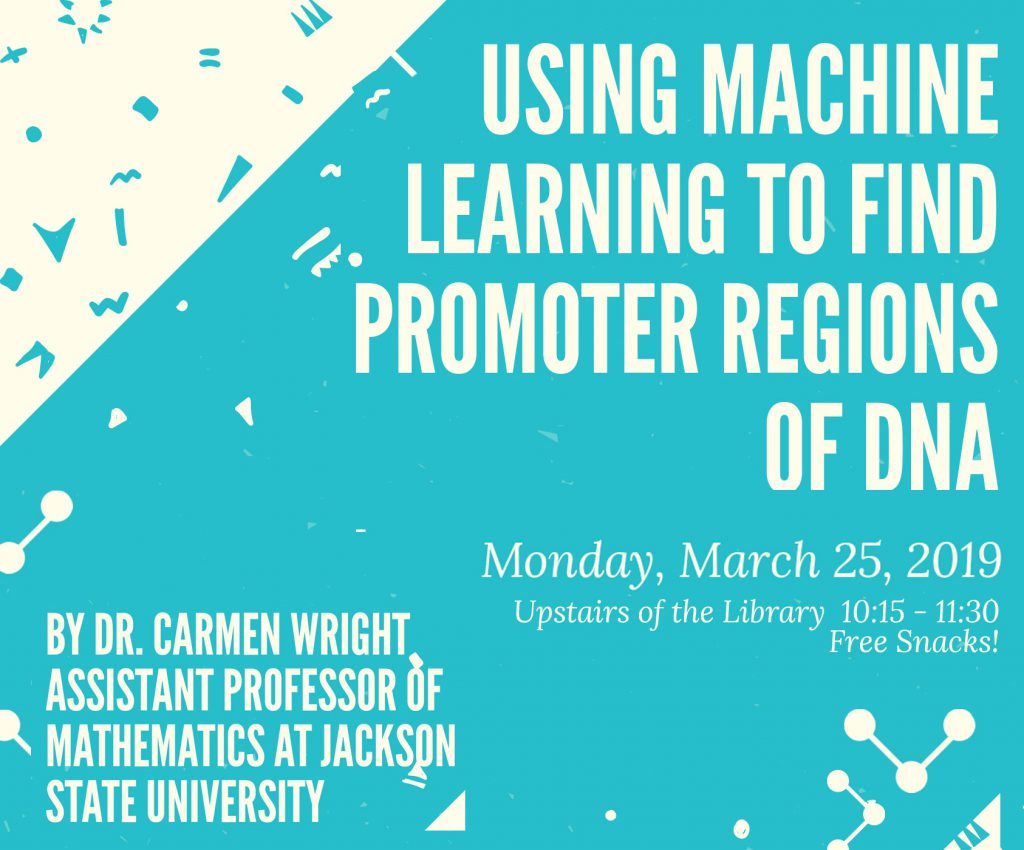
Can artificial intelligence help researchers in the search for key DNA region?
Dr. Carmen Wright, a Jackson State University assistant professor, will examine this issue during a March 25 talk on the UH West Oʻahu campus. Wright will speak on “Using machine learning to find promoter regions of DNA,” from 10:15 to 11:30 a.m. at the James & Abigail Campbell Library’s second-floor exhibition area.

Dr. Carmen Wright
Scientists are using machine learning to aid in the discovery of promoter regions as they look to solve various mysteries about illnesses and the human body. According to a paper published in Computational Biology of Transcription Factor Binding, promoter sequences are the main regulatory elements of gene expression and their recognition by computer algorithms is fundamental for understanding gene expression patterns, cell specificity, and development.
According to the abstract for Wright’s talk, the correct identification of promoter regions is one of the major challenges in biology. Wright notes that computational methods based on motif searching have been the traditional approach taken and that studies show that DNA structural properties such as free energy, curvature, and stress-induced duplex destabilization are useful in identifying promoters as well. She will compare these properties for their effectiveness in correctly identifying promoters using classifiers.
Wright’s talk is sponsored by the UH West Oʻahu chapter of the Society for Advancement of Chicanos and Native Americans in Science (SACNAS), an organization dedicated to fostering the success of Chicano/Hispanic, Native American, and underrepresented scientists, from college students to professionals, in attaining advanced degrees, careers, and positions of leadership in STEM. SACNAS chapters in Hawaiʻi have worked to promote STEM careers and education to students and students from UH West Oʻahu have attended SACNAS conferences on the mainland in recent years.
The UH West Oʻahu SACNAS Chapter is committed to helping students form a community that will ensure all students; from diverse backgrounds, will have success and access to graduate STEM programs and other professional programs. The chapter’s aim is to provide members with opportunities to grow both professionally and personally through education by promoting research opportunities, mentorship, community service, and other social and professional networks. The annual SACNAS meeting will be here on Oʻahu in 2019.
